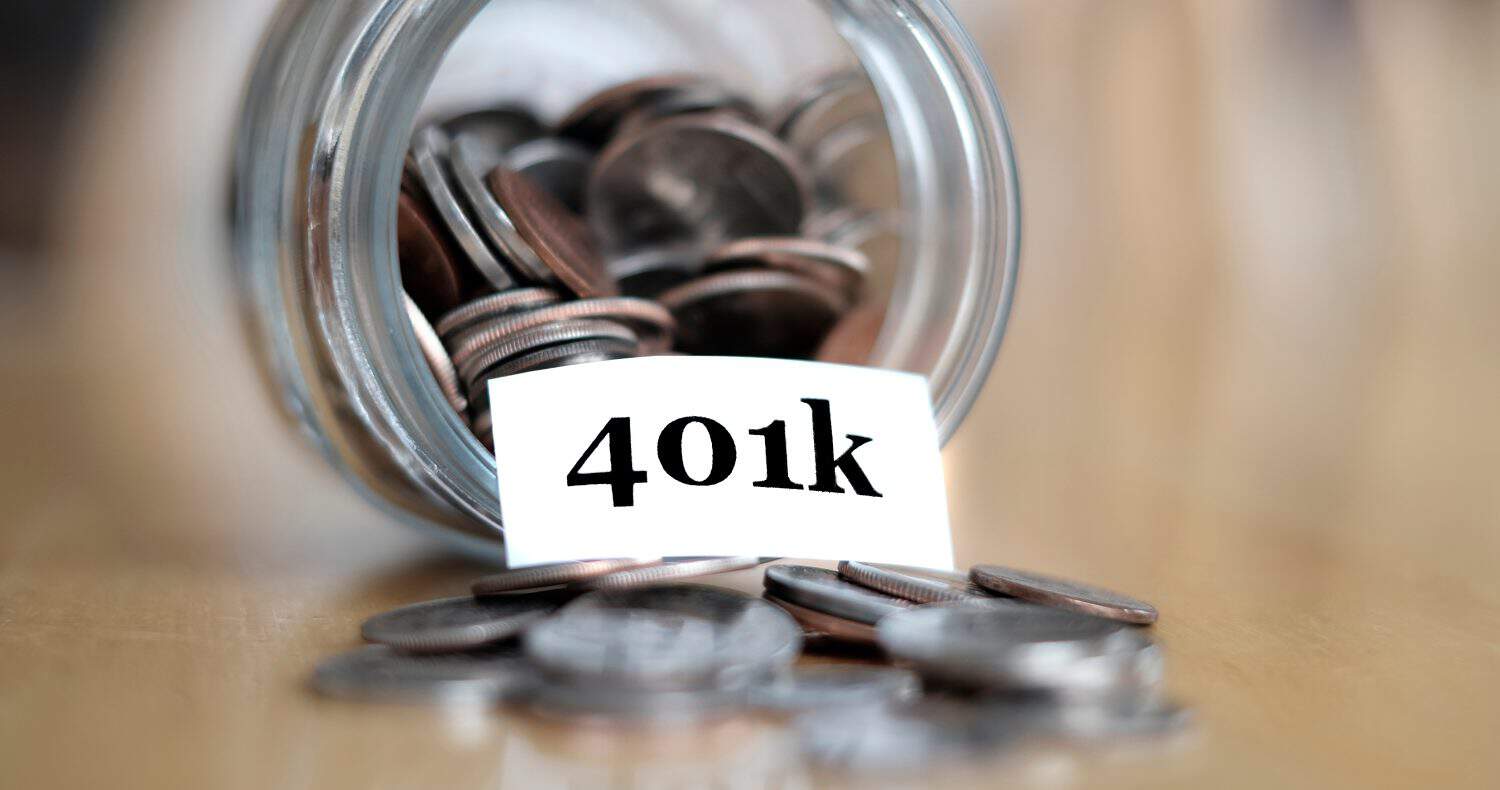
This post may contain links from our sponsors and affiliates, and Flywheel Publishing may receive
compensation for actions taken through them.
Key Points
- A 401(k) plan will help you build up savings for retirement.
- Pay off any high-interest debt before investing in a 401(k).
- Always make sure you have an emergency fund available.
- Also: Are You On Track to Retire? Take This Quiz and Find Out (Sponsored)
Anyone who has ever received the most basic financial advice has been told to invest in a 401(k) account. This usually focuses on whether you have an employer that provides matching contributions. If you do, the best advice from a financial planner is generally to take every advantage and earn what is essentially “free money.”
However, while a 401(k) sounds good on paper, you don’t always have to go through with the maximum contribution, especially if you have other, more immediate financial considerations. The good news is that you hopefully have time to replace any money not invested today, but even so, there are today versus tomorrow financial needs that can heavily influence whether you are maxing out a 401(k).
When You Should Max Out Your 401(k)
Take Advantage of Employer Matching
Undoubtedly, one of the biggest reasons to max out your 401(k) is the matching contribution you can receive from your employer. In 2024, the maximum 401(k) contribution is $23,000, and it will jump to $23,500 in 2025, which means you can earn up to the same amount from an employer. There is more of an urgency to take advantage of this if you are someone 50 years or older with access to catch-up contribution amounts.
Let’s start with an example of someone who makes $75,000 a year, and their employer matches 401(k) contributions up to 6%. This employer could provide another $4,500 in 401(k) contributions without penalty. In other words, if you fail to take advantage of this matching type, you leave $4,500 of free money on the table.
Taxable Income Advantages
Anytime you contribute to your 401(k), you reduce the taxable income you must pay yearly. This allows you to save more money upfront and pay less tax, which feels like a win-win.
In other words, if you are in the 24% tax bracket and making the maximum contribution of $23,000, you save $5,520 in federal taxes yearly. It’s important to know that this only applies to a Traditional 401(k), as a Roth 401(k) will offer you tax-free growth and withdrawals in retirement instead.
Either way, the tax advantages are evident as to why you should max out your 401(k) contributions. While not common, there is also a possibility that the money you are putting into a 401(k) could lower your taxable income and move you into a lower tax bracket. This scenario will not apply to everyone, but anyone on the fence between two different tax brackets could find this applicable and beneficial.
Fast-Moving Retirement Goals
Many reasons for maxing out your 401(k) simply come from your retirement goals. If you are 50 plus and eligible for catch-up contributions, it makes all the sense to max out your 401(k). Are you someone who wants to retire as early as possible?
If so, you have all the arguments you need to maximize your 401(k) as quickly as possible. If you are in a high-income tax bracket now and expect to be in a lower one during retirement, you should take advantage of the tax-deferred savings of a Roth 401(k).
Ultimately, maxing out contributions can be right for many people, especially those who want to live a FIRE (Financial Independence Retire Early) lifestyle.
When You Should Not Max Out Your 401(k)
Need to Pay Off High-Interest Debt
Your income is the most potent tool for building wealth, but you can’t do it if you still have credit cards and potentially other high-interest debt, like a car loan, outstanding. Labeling high-interest debt as the 401(k) killer or silent savings killer may sound dramatic, but it’s very much steeped in reality.
Some credit cards can carry interest amounts between 15 and 25%, which means you earn far more in interest than you would with the average annual return of a 401(k) at 8%. It would help if you started by looking at the Bank Rate Credit Card Payoff Calculator and attacking these high-interest debts by creating a payment plan that works for you.
The big takeaway is that you should prioritize paying off any debt, especially any debt accumulating more interest than a 401(k) could earn. Using a credit card payoff calculator will help you get on the right path toward reducing this debt, and once it’s reduced far enough, you can consider shifting dollars back to a 401(k) plan.
It’s okay to still contribute to your 401(k) while working to pay off debt to take advantage of employer matching, but maxing out funds shouldn’t be on the table now. Target your highest-interest debt using the “snowball” method to get started, then move into lower-interest balances.
Build An Emergency Fund
If you find yourself without a stable emergency fund that can last anywhere between 6 and 12 months, you must focus on this before worrying about 401(k) contributions. Rest assured that even the smallest emergency can become a big crisis, especially around medical costs, home repairs, or even fixing up a car damaged in an accident.
According to reports, the most prominent reason people went into their 401(k) savings accounts early was for hardship withdrawals. While these plans allow you to take some money out to handle an emergency, you shouldn’t be in a position where you need to do this. In other words, you should exhaust an emergency fund before taking money from this account.
It’s a challenging situation between the taxes, the penalties you can incur, and any interest you might accrue while repaying the money. This is why it’s essential to set this emergency fund aside first and foremost, and then you can put money back into a 401(k) contribution pot.
You Need Help With Budgeting
One of the most important things to have as an adult is a solid budget you can stick to every month. If you struggle to stick with a budget and always go above in specific categories, this is another sign that investing in a 401(k) isn’t right for you. At least not right now.
You might want to consider looking at something like Quicken’s free budget calculator, which can help you see exactly where you are overspending. It would be best to focus on getting your budget in a good place before you reconsider maxing out a 401(k) program.
Understanding what percentage of your budget goes to fixed costs like a car loan, mortgage/rent, and utility bills is a good place to start. From there, you can break down what you are spending that isn’t a fixed cost, like entertainment or dining, which might help you reduce expenses in this area and convert this money into a 401(k) contribution.
Unfortunately, money doesn’t grow on trees, so we have to make do with what is coming in and available to spend. This is why it’s essential to use your existing financial resources wisely.
Get Ready To Retire (Sponsored)
Start by taking a quick retirement quiz from SmartAsset that will match you with up to 3 financial advisors that serve your area and beyond in 5 minutes, or less.
Each advisor has been vetted by SmartAsset and is held to a fiduciary standard to act in your best interests.
Here’s how it works:
1. Answer SmartAsset advisor match quiz
2. Review your pre-screened matches at your leisure. Check out the advisors’ profiles.
3. Speak with advisors at no cost to you. Have an introductory call on the phone or introduction in person and choose whom to work with in the future
Have questions about retirement or personal finance? Email us at [email protected]!
By emailing your questions to 24/7 Wall St., you agree to have them published anonymously on a673b.bigscoots-temp.com.
By submitting your story, you understand and agree that we may use your story, or versions of it, in all media and platforms, including via third parties.
Thank you for reading! Have some feedback for us?
Contact the 24/7 Wall St. editorial team.




